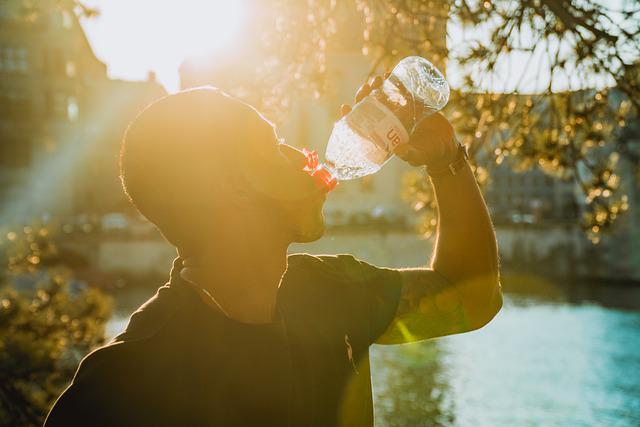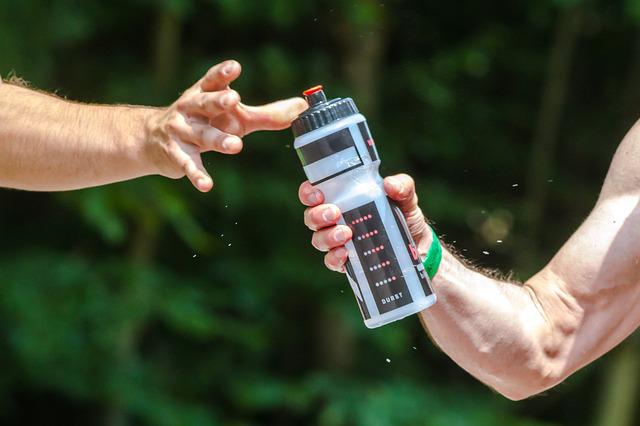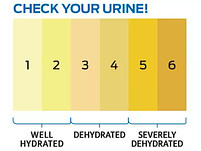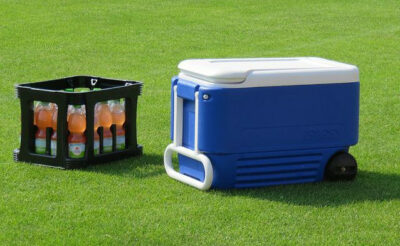Introduction to Hydration
At the time of writing this article, it has just been recorded in the UK as having some of the hottest days on record.
Therefore, I thought writing about hydration in football would be very appropriate considering the new football season is due to start soon and preseason is well underway.
Getting your hydration right can be the difference between dominating the training sessions and match days. With the high-intensity levels required, or feeling sluggish and running out of energy part way through and having to stop or be replaced, especially when the weather is hot and humid.
Hydration and performance
Hydration and dehydration can play a major role in any sport, not just football. For instance, if you as a player are dehydrated, which means that your body has lost a lot of fluid without being replaced, you will feel sluggish and your blood will have thickened, affecting your overall performance.

At 2% dehydration, performance will fall off by 10-20%. Extreme dehydration to the entire body may be life-threatening.
Illnesses that produce diarrhoea and vomiting are common causes of dehydration since both of these conditions cause loss of body fluids.
Matchday hydration is one of the most important factors in a football player’s ability to perform, and not taking on enough fluids, both before and during a match could mean you run out of steam very quickly.
During a match, the body releases heat through the evaporation of sweat. Sweating and breathing lead to the loss of fluids, which may be around 2 – 3 litres for a player during a football match.
Loss of body fluids will decrease blood volume and therefore cause the heart to beat more frequently to compensate for the fact that the heart will not fill before each contraction.
A decrease in body water will also cause the body temperature to increase more than normal during exercise, as there is less blood transporting the excess heat to the skin. These changes inhibit performance.
When to hydrate
One of the most significant risk factors in football is that most players will start training or even a match in an already dehydrated state.
The average footballer can potentially cover up to 12 kilometres during a match, and it is not unusual for a very active player to lose up to a kilo in weight through dehydration, it is this weight loss needs to be addressed quickly.
To try and combat some of that weight loss through perspiration, you as a football player should start hydrating 24 hours before the game even starts. Then one to three hours before the match and you should be drinking around 17 to 20 ounces of water.
The window of opportunity is very limited in football but you should then try and drink about 10 ounces after every 10 or 20 minutes of the game. So, try and keep a bottle close by where you can take small sips during regular breaks, although that’s not always possible.
Finally, you should drink a lot of water after a match – even several hours after to make sure you are fully hydrated.
What should a football player be drinking

Drinking lots of water is the best way to hydrate the body but it can also be replenished by drinking a variety of other fluids.
Essential minerals are also lost through sweating so drinking coconut water or isotonic sports drinks might deliver faster and more noticeable results, which unlike water also replenishes the electrolytes in the body.
Replenishing electrolytes is important, especially when playing under hot and humid conditions. Electrolytes help players feel refreshed, give a quick energy boost and may also prevent muscle fatigue.
How do I know if I’m dehydrated?

I was told many years ago that if you are thirsty you are already dehydrated, so try not to wait until you need a drink to keep yourself hydrated.
Another way to determine the greater need to take in more fluid for rehydration, players should use the colour of urine as an indication – the more yellow the urine, the more fluid is needed.
There is an indicator tool that can be used to guide you as to whether your urine is darker than it should be and in some football clubs is usually posted above the toilet to keep you in the habit of checking whether you are fully hydrated or not.
However, urine colour is not the ultimate guide as some supplements or medications could affect the colour slightly.
Optimising hydration on matchdays
- When you wake up in the morning drink 500 ml of water and start the rehydration process quickly.
- Try and drink enough fluid each day building up to the game to create clear urine consistently, which is about 2 – 2.5 litres each day.
- Drink a litre of water for every hour of exercise.
- Weigh yourself before and after exercise and drink 150% of body mass loss in ml of water.
- To rehydrate, don’t just drink water drink fluids that provide carbohydrates and electrolytes as well
- Try and drink the required amount of fluid within 5 hours of completing your match.
Conclusion
Football is one of those sports that doesn’t have a hydration plan in place when it comes to games, and it is very difficult to take regular drinks to be able to stay hydrated.
That is unless there is very hot weather and then regular water breaks are planned into the game time for the players to stop and take a drink. Fluid intake is beneficial for all the players and the officials as dehydration may cause performances to decrease.
Football players and coaches need to be educated on hydration, as younger players are at even more risk of dehydration than an adult because they have less capacity for sweating, and their body temperature can rise quickly.
As a coach or even a parent, you should be aware of this and provide regular drink breaks for your players preferably in a shaded area.
If you enjoyed this article and have any questions or comments or just wish to share your thoughts.
Please leave them in the comments box and I will respond once I get the chance.



This is really useful information some of it I was aware of but a lot of I had no idea. The chart is particularly good and a useful guide for my younger players to pay attention to. I’m going to start implementing a hydration plan for my team that will hopefully help their performance especially later in the game
Thanks Jay
I’m glad you enjoyed it and can take something away from the article. I would love to know how your hydration plan with your players comes along and if it has any effect on their performance.
Chris
Hey Chris,
I like how you put together the importance of hydration and when, how much they should intake. Your right about the color of your urine, it can tell you a lot. I also looked through your site and I like how you have the main page set up. Have you tried uploading videos? These days people react to pictures or videos more than reading. When you shared how you used a drone to instruct, I thought that was awesome. By having videos you may get more reactions.
Shane
Thanks for the comments Shane, I will definitely try and get some video footage added. I will have to be careful of Safeguarding issues due to coaching the younger players but I can certainly look at some other video content to add
Chris